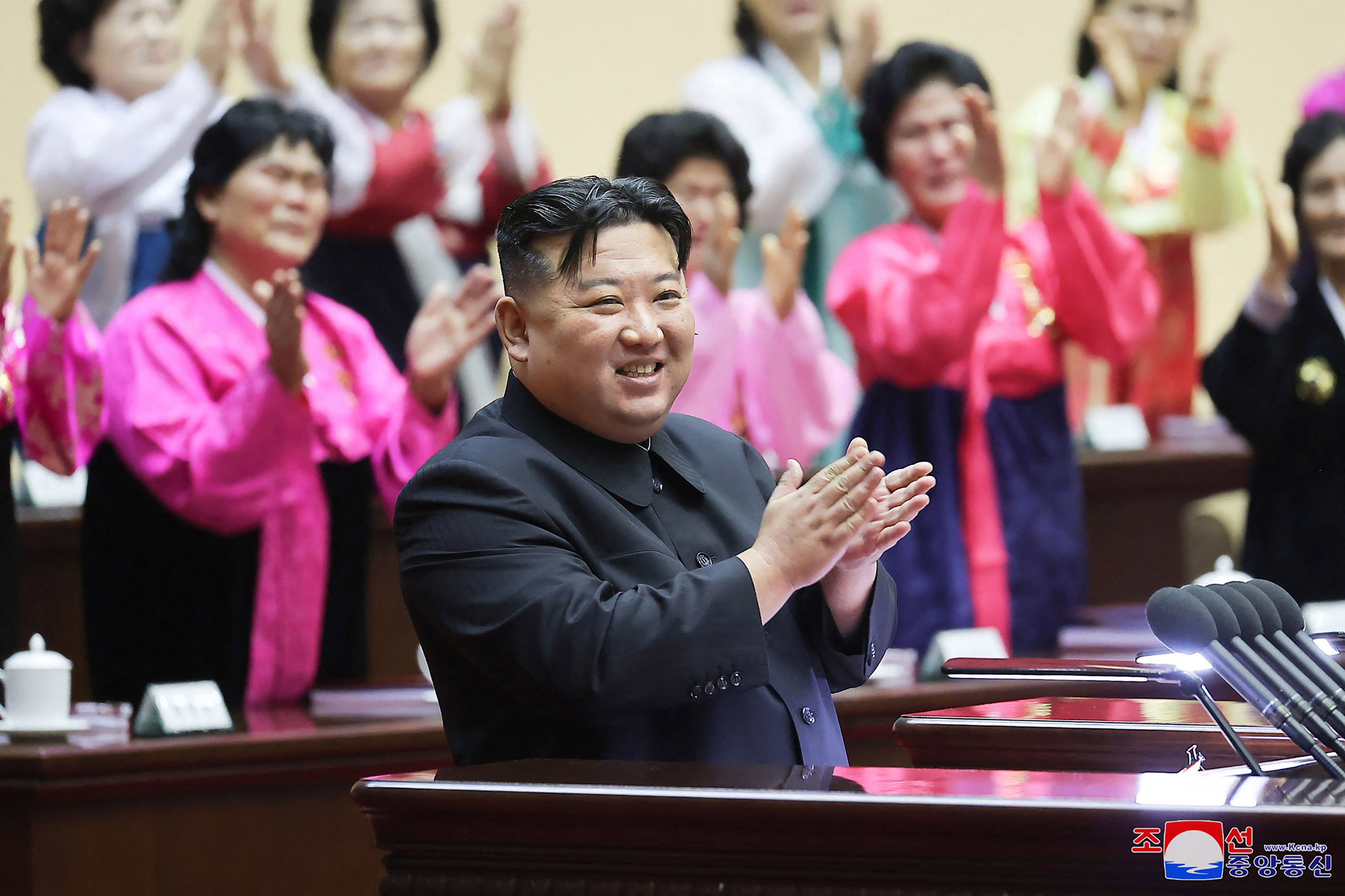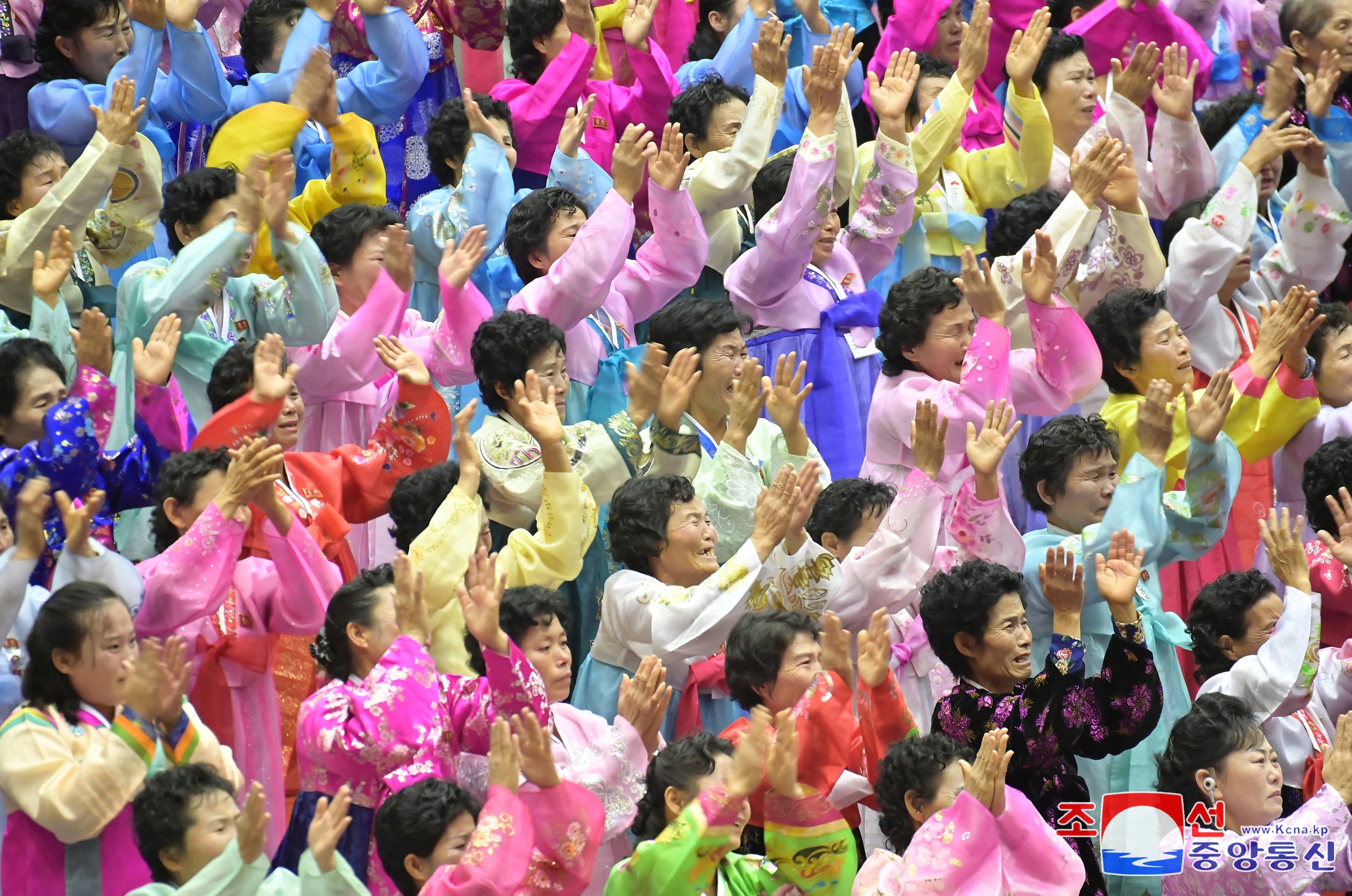Kim Jong-un cries as he begs North Korean women to help halt a decline in country’s birth rate
The average number of children being born to a woman in North Korea, stood at 1.8
Your support helps us to tell the story
From reproductive rights to climate change to Big Tech, The Independent is on the ground when the story is developing. Whether it's investigating the financials of Elon Musk's pro-Trump PAC or producing our latest documentary, 'The A Word', which shines a light on the American women fighting for reproductive rights, we know how important it is to parse out the facts from the messaging.
At such a critical moment in US history, we need reporters on the ground. Your donation allows us to keep sending journalists to speak to both sides of the story.
The Independent is trusted by Americans across the entire political spectrum. And unlike many other quality news outlets, we choose not to lock Americans out of our reporting and analysis with paywalls. We believe quality journalism should be available to everyone, paid for by those who can afford it.
Your support makes all the difference.Kim Jong-un burst into tears in front of thousands of North Korean “mothers” as he begged them to have more babies and stop the decline in the communist country’s birth rate.
The dictator was seen dabbing his eyes with a handkerchief in a highly choreographed plea to women gathered at a National Mothers’ Meeting in Pyongyang on Sunday.
Addressing the audience as “Dear Mothers” he told them: “Preventing a decline in birth rates and good childcare are all of our housekeeping duties we need to handle while working with mothers.”

He added his country was being confronted with a host of “social tasks that our mothers should join to tackle.”
“These tasks include bringing up their children so that they will steadfastly carry forward our revolution, eliminating the recently-increasing non-socialist practices, promoting family harmony and social unity, establishing a sound way of cultural and moral life, making the communist virtues and traits of helping and leading one another forward prevail over our society, stopping the declining birth rate, and taking good care of children and educating them effectively.
“These belong to our common family affairs, which we need to deal with by joining hands with our mothers.”

The United Nations Population Fund estimates that as of 2023 the fertility rate, or the average number of children being born to a woman in North Korea, stood at 1.8, amid an extended fall in the rate during recent decades.
The fertility rate remains higher than in some of North Korea’s neighbours, which have been grappling with a similar downward trend.
South Korea saw its fertility rate drop to a record low of 0.78 last year, while Japan saw its figure drop to 1.26.
The dwindling birth rates in South Korea have caused a shortage of pediatricians, while one city is hosting matchmaking events to boost birth rates.
North Korea, which has a population of about 25 million people, has in recent decades also had to contend with serious food shortages, including deadly famine in the 1990s, often a result of natural disasters such as floods damaging harvests.
North Korea implemented birth control programs in the 1970-80s to slow a postwar population growth. The country’s fertility rate recorded a major decline following a famine in the mid-1990s that was estimated to have killed hundreds of thousands of people, the Seoul-based Hyundai Research Institute said in a report in August.
“Given North Korea lacks resources and technological advancements, it could face difficulties to revive and develop its manufacturing industry if sufficient labor forces are not provided,” the institute report said.

Join our commenting forum
Join thought-provoking conversations, follow other Independent readers and see their replies
Comments